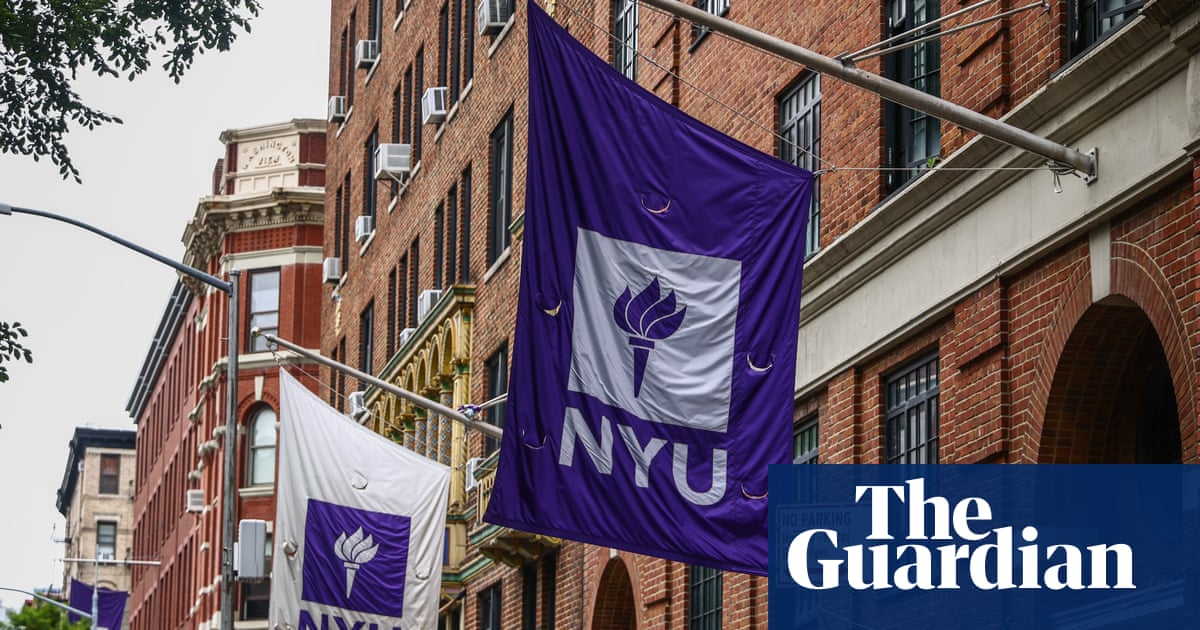New YorkUniversity is withholding a student’s diploma after he condemnedIsrael’s deadly war on Gazaduring his graduation ceremony speech.
On Wednesday, Logan Rozos, an undergraduate student speaker from NYU’s Gallatin School of Individualized Study, delivered his commencement speech in which he said: “The only thing that is appropriate to say in this time and to a group this large is a recognition of the atrocities currently happening inPalestine.”
Rozos told the crowd that “as I search my heart today in addressing you all”, it is his “moral and political commitments [that] guide me” into condemning Israel’s onslaught on Gaza, which has killed at least 53,000 Palestinians over the last year and a half.
Rozos went on to say: “The genocide currently occurring is supported politically and militarily by the United States, is paid for by our tax dollars and has been livestreamed to our phones for the past 18 months. And that I do not wish to speak only to my own politics today, but to speak for all people of conscience, and all people who feel the moral injury of this atrocity.”
Rozos’s anti-war speech was met with widespread cheers and applause from students across the auditorium. Some attendees booed Rozos, with one person appearing to yell “bullshit!” from the crowd.
Following Rozos’s speech, NYU released astatementsaying that it “strongly denounces the choice by a student at the Gallatin School’s graduation today … to misuse his role as student speaker to express his personal and one-sided political views”.
“He lied about the speech he was going to deliver and violated the commitment he made to comply with our rules. The university is withholding his diploma while we pursue disciplinary actions. NYU is deeply sorry that the audience was subjected to these remarks and that this moment was stolen by someone who abused a privilege that was conferred upon him,” the university added.
As of Thursday morning, Rozos’s student profile on NYU Gallatin’s website appeared to have been taken down, with a messagesaying: “Page or File Not Found (404 Error)”.
Rozos and NYU did not immediately return a request for comment.
Last August, NYU updated its student conduct guidelines to include “code words, like ‘Zionist’” as examples of discriminatory speech.
“For many Jewish people, Zionism is a part of their Jewish identity. Speech and conduct that would violate the [nondiscrimination and anti-harassment policy] if targeting Jewish or Israeli people can also violate the NDAH if directed toward Zionists,” the universitysaid.
The updated guidelines came months after anti-war students at NYU and other college campuses across the country demonstrated in solidarity with Palestine. As a result, NYU administrators called police to campus, leading to widespreadarrestsof students and faculty members.
Last December, two tenured professors who were declared “personae non gratae” by NYU accused the university of escalating its suppression of anti-war speech under pressure from donors, politicians and pro-Israel organizations.
The two professors, Andrew Ross and Sonya Posmentier,were barredfrom entering certain university buildings. The PNG declarations came after Ross and Posmentier joined a sit-in at the university library in calls for the university to divest from companies profiting off of Israel’s war in Gaza.
A few months later, the universitycanceled a talk on USAIDcuts after it deemed the lecture as “anti-governmental”. According to Dr Joanne Liu, a pediatric emergency physician at Sainte-Justine hospital and former international president of Médecins Sans Frontières (Doctors Without Borders), NYU’S vice-chair of the education department called her the evening before her presentation in March.
Liusaidthe vice-chair voiced concerns about the content of some of her slides, including ones that mentioned USAID cuts by theTrump administration, as well as slides that cited Palestinian casualties in Gaza as a result of Israel’s war across the strip. Liu said she was told that the slides on Gaza “could be perceived as antisemitic”.
